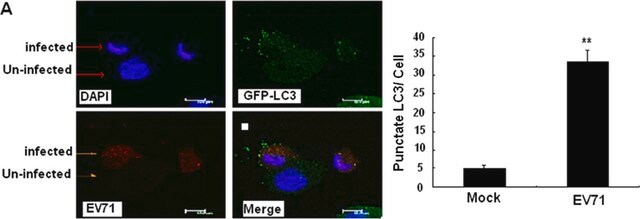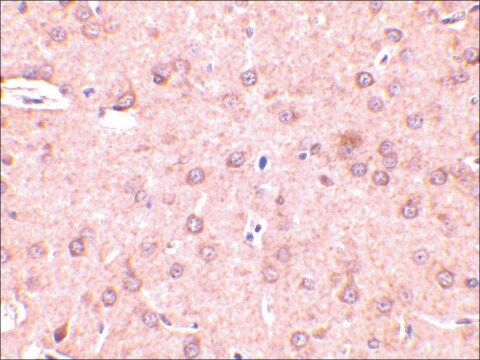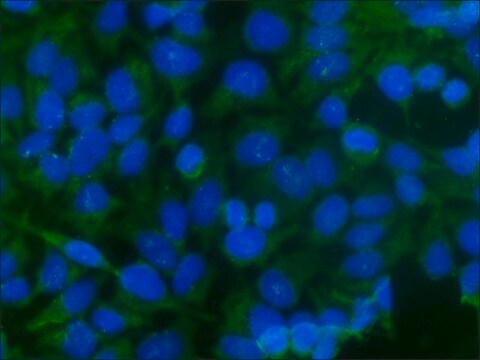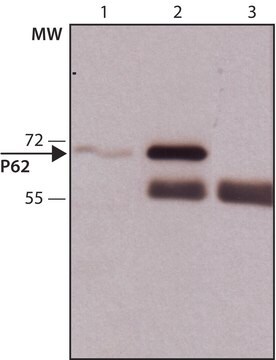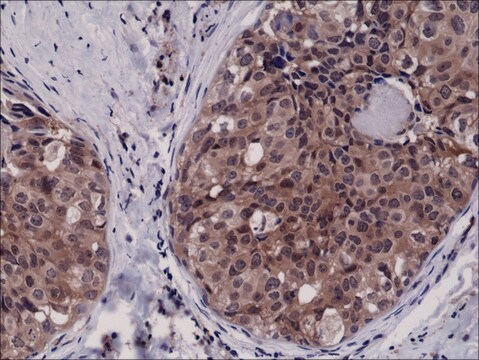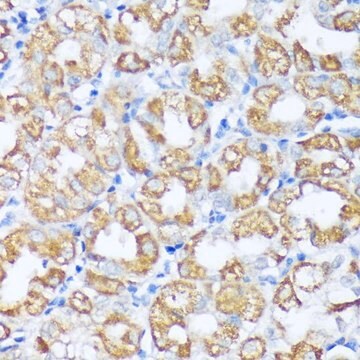MABC34
Anti-Beclin-1 Antibody, clone 9A1.1
clone 9A1.1, from mouse
Sinónimos:
Beclin-1, Coiled-coil myosin-like BCL2-interacting protein, Protein GT197
About This Item
Productos recomendados
biological source
mouse
Quality Level
antibody form
purified immunoglobulin
antibody product type
primary antibodies
clone
9A1.1, monoclonal
species reactivity
human
packaging
antibody small pack of 25 μg
technique(s)
flow cytometry: suitable
immunohistochemistry: suitable (paraffin)
western blot: suitable
isotype
IgG2aκ
NCBI accession no.
UniProt accession no.
shipped in
ambient
storage temp.
2-8°C
target post-translational modification
unmodified
Gene Information
human ... BECN1(8678)
General description
Immunogen
Application
Flow Cytometry Analysis: 1 µg from a representative lot detected Beclin-1 in HeLa cells.
Apoptosis & Cancer
Apoptosis - Additional
Quality
Western Blot Analysis: 0.5 µg/mL of this antibody detected Beclin-1 in 10 µg of Raji cell lysate.
Target description
Linkage
Physical form
Storage and Stability
Analysis Note
Raji cell lysate
Other Notes
Disclaimer
¿No encuentra el producto adecuado?
Pruebe nuestro Herramienta de selección de productos.
Optional
Certificados de análisis (COA)
Busque Certificados de análisis (COA) introduciendo el número de lote del producto. Los números de lote se encuentran en la etiqueta del producto después de las palabras «Lot» o «Batch»
¿Ya tiene este producto?
Encuentre la documentación para los productos que ha comprado recientemente en la Biblioteca de documentos.
Artículos
Autophagy is a highly regulated process that is involved in cell growth, development, and death. In autophagy cells destroy their own cytoplasmic components in a very systematic manner and recycle them.
Nuestro equipo de científicos tiene experiencia en todas las áreas de investigación: Ciencias de la vida, Ciencia de los materiales, Síntesis química, Cromatografía, Analítica y muchas otras.
Póngase en contacto con el Servicio técnico
